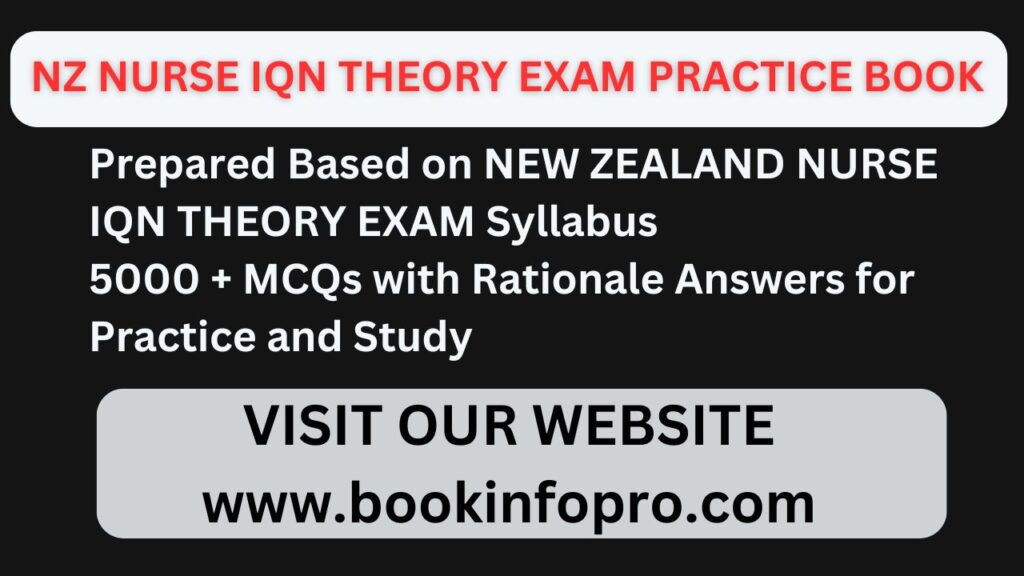New Zealand Nurse IQN Theoretical Exam Questions
NEW ZEALAND IQN NURSE THEORY EXAM PRACTICE BOOK
Ethical/Legal Nursing Care MCQs
Question 1: What is the principle that ensures a patient’s right to make their own decisions regarding medical treatment?
a) Nonmaleficence
b) Autonomy
c) Justice
d) Beneficence
Answer: b) Autonomy
Explanation: Autonomy is the ethical principle that recognizes the patient’s right to make decisions about their healthcare.
Question 2: A nurse discusses a patient’s health condition with a family member without the patient’s permission. What ethical principle is being violated?
a) Veracity
b) Autonomy
c) Confidentiality
d) Justice
Answer: c) Confidentiality
Explanation: Confidentiality involves keeping patient information private unless the patient consents to sharing it.
Question 3: A nurse administers medication to a patient without their informed consent. What legal concept might this action violate?
a) Battery
b) Assault
c) Negligence
d) Malpractice
Answer: a) Battery
Explanation: Battery is the intentional and unauthorized physical contact with a patient, such as administering medication without consent.
Question 4: A nurse refuses to care for a patient based on their race. Which ethical principle does this violate?
a) Beneficence
b) Justice
c) Nonmaleficence
d) Veracity
Answer: b) Justice
Explanation: Justice involves treating patients fairly and without discrimination based on factors such as race, gender, or religion.
Question 5: What is the term for providing false information to a patient about their medical condition or treatment?
a) Negligence
b) Malpractice
c) Veracity
d) Fraud
Answer: c) Veracity
Explanation: Veracity refers to being honest and truthful with patients.
Question 6: A nurse performs a procedure on a patient for which they have not been trained. What legal concept might this violate?
a) Assault
b) Negligence
c) Informed Consent
d) Breach of Duty
Answer: b) Negligence
Explanation: Negligence occurs when a healthcare provider fails to meet the standard of care, leading to potential harm.
Question 7: What is the term for a nurse’s duty to act in the best interest of the patient?
a) Beneficence
b) Autonomy
c) Fidelity
d) Nonmaleficence
Answer: a) Beneficence
Explanation: Beneficence involves taking actions that benefit the patient.
Question 8: A nurse withholds information from a patient about a potential treatment option. What ethical principle is being compromised?
a) Justice
b) Veracity
c) Fidelity
d) Autonomy
Answer: d) Autonomy
Explanation: Withholding information restricts a patient’s ability to make informed decisions about their healthcare.
Question 9: What is the term for making a written or verbal false statement about a colleague or patient?
a) Libel
b) Slander
c) Defamation
d) All of the above
Answer: d) All of the above
Explanation: Libel refers to written false statements, slander to verbal false statements, and defamation encompasses both.
Question 10: A nurse mistakenly administers the wrong medication, causing harm to the patient. What legal concept does this represent?
a) Malpractice
b) Battery
c) Negligence
d) Breach of Duty
Answer: a) Malpractice
Explanation: Malpractice occurs when professional negligence leads to harm, typically involving medical professionals.

